Festivals in Jammu and Kashmir in August 2025
Jammu and Kashmir, with its breathtaking landscapes and rich cultural heritage, celebrates a variety of festivals that reflect its diverse traditions and spiritual beliefs. The month of August 2025 is marked by several significant festivals, each with its unique rituals and importance. This article explores these festivals, offering insights into their history, customs, and the vibrant celebrations that bring communities together
Read More About Hindu Philosophy
1. Nag Panchami
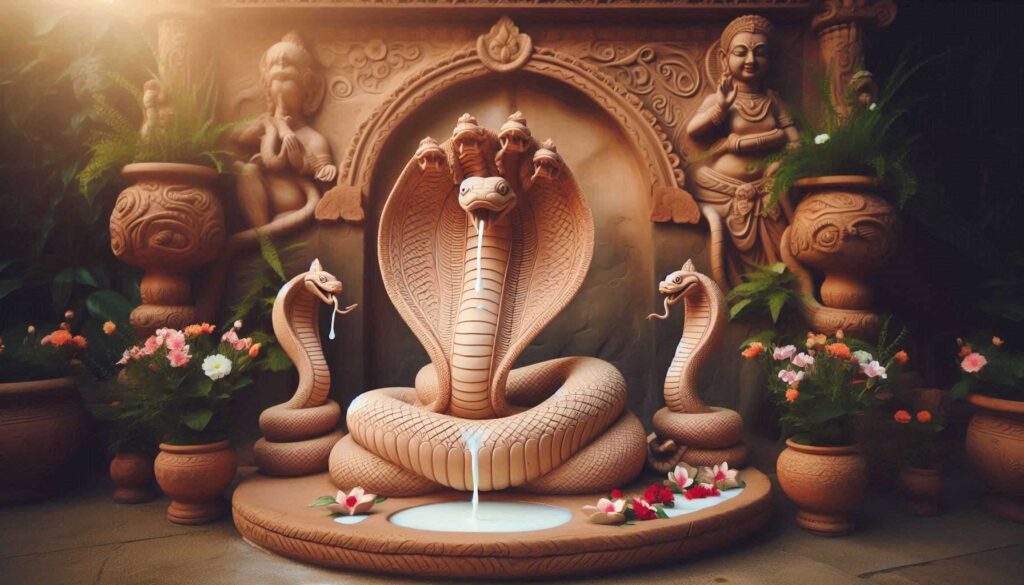
Date: August 4, 2025
Overview: Nag Panchami is a Hindu festival dedicated to the worship of snakes (Nagas). Celebrated on the fifth day of the lunar month of Shravana, it holds special significance in regions like Jammu and Kashmir, where the natural environment is rich with serpentine legends.
Rituals:
- Worship of Snake Idols: Devotees create clay idols of snakes and offer them milk, fruits, and flowers. Temples dedicated to Nag deities see increased attendance as people come to seek blessings for protection and prosperity.
- Recitation of Prayers: Many families recite the “Naga Stotra” and other prayers to appease the Nagas, asking for their blessings for health and safety.
- Festive Feasts: Traditional dishes are prepared, and some families observe a day of fasting, breaking their fast with sweet delicacies after the rituals.
Cultural Significance: Nag Panchami emphasizes the importance of nature and the respect that Hindus have for all living beings. The festival reminds devotees of the vital role of snakes in the ecosystem and encourages harmonious coexistence with nature.
2. Hariyali Teej
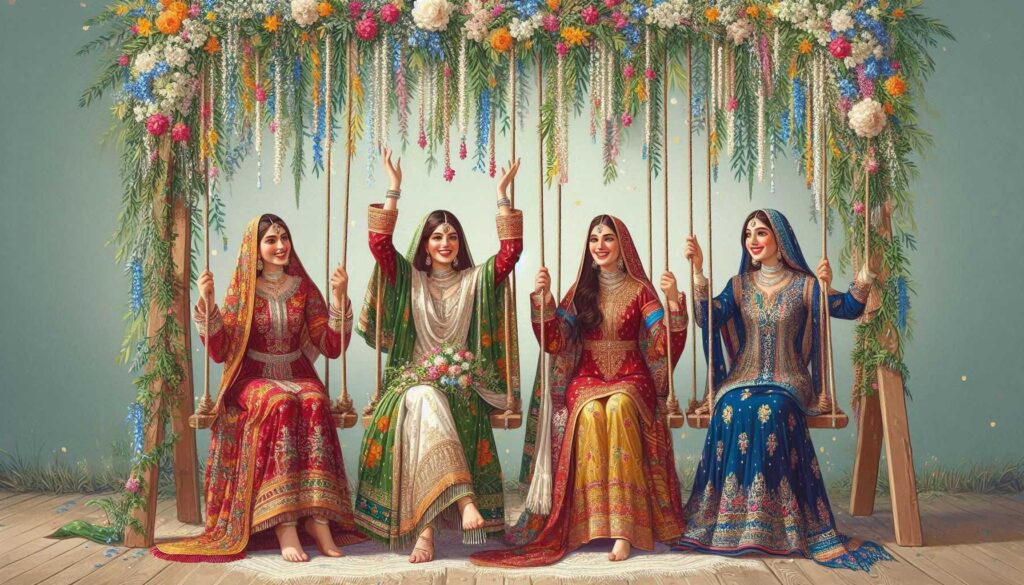
Date: August 16, 2025
Overview: Hariyali Teej, also known simply as Teej, celebrates the arrival of the monsoon season and the lush greenery it brings. This festival is particularly important for women, who pray for the well-being of their families and a good harvest.
Rituals:
- Fasting and Prayers: Women typically fast and dress in green attire, symbolizing the lush landscape. They visit temples dedicated to Goddess Parvati, seeking her blessings for marital bliss.
- Cultural Programs: Various cultural events are organized, including folk dances, songs, and competitions, highlighting the community spirit and the joy of the season.
- Swing Rituals: A unique feature of this festival is the swinging of decorated swings under trees, where women gather to sing traditional songs, celebrating femininity and togetherness.
Cultural Significance: Hariyali Teej represents the joy of new beginnings and the vitality of nature. It underscores the importance of community bonds and the role of women in nurturing families and traditions.
3. Independence Day
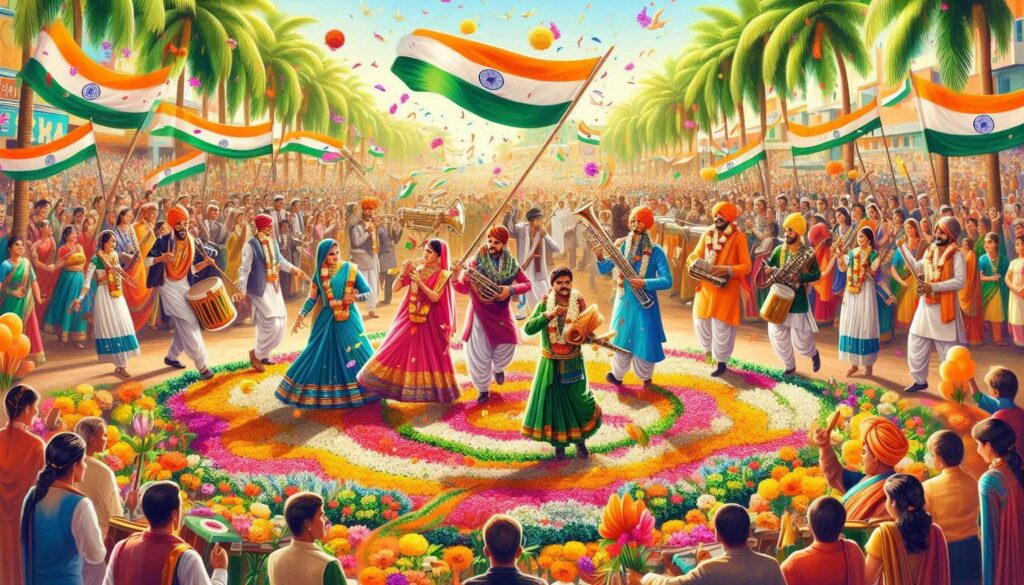
Date: August 15, 2025
Overview: India’s Independence Day is a national holiday celebrated with great fervor across Jammu and Kashmir. This day marks the end of British rule and the establishment of a sovereign nation.
Rituals:
- Flag Hoisting: Government buildings, schools, and community centers host flag-hoisting ceremonies, where the national anthem is sung.
- Parades and Cultural Events: Various cultural programs and parades showcase the diversity of the region, including traditional dances, music, and patriotic displays.
- Community Service: Many people engage in community service, reflecting the spirit of unity and patriotism.
Cultural Significance: Independence Day fosters a sense of national pride and unity. In Jammu and Kashmir, it is a day to celebrate not only national freedom but also the rich cultural heritage of the region.
4. Raksha Bandhan
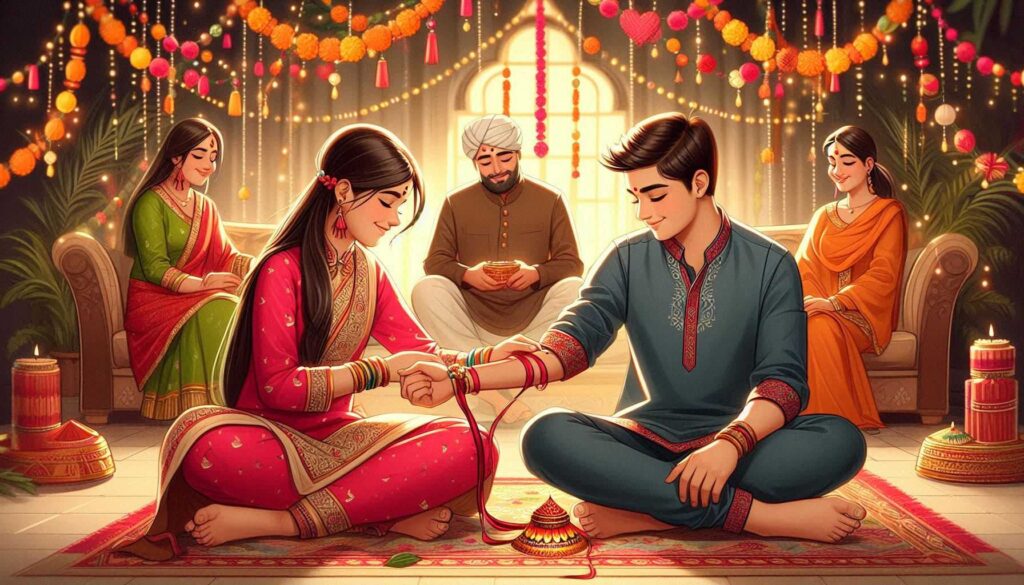
Date: August 22, 2025
Overview: Raksha Bandhan celebrates the bond between brothers and sisters. On this day, sisters tie a sacred thread (rakhi) around their brothers’ wrists, symbolizing love and protection.
Rituals:
- Tying of Rakhis: Sisters perform aarti (a ritual involving light) and tie rakhis on their brothers’ wrists, wishing them well-being and success.
- Gifts and Sweets: Brothers give gifts in return, often including sweets, and promise to protect their sisters throughout their lives.
- Family Gatherings: Families come together to celebrate, sharing meals and enjoying each other’s company.
Cultural Significance: Raksha Bandhan emphasizes familial bonds and the importance of protective relationships. It reflects the values of love, duty, and care within families.
5. Gurpurab
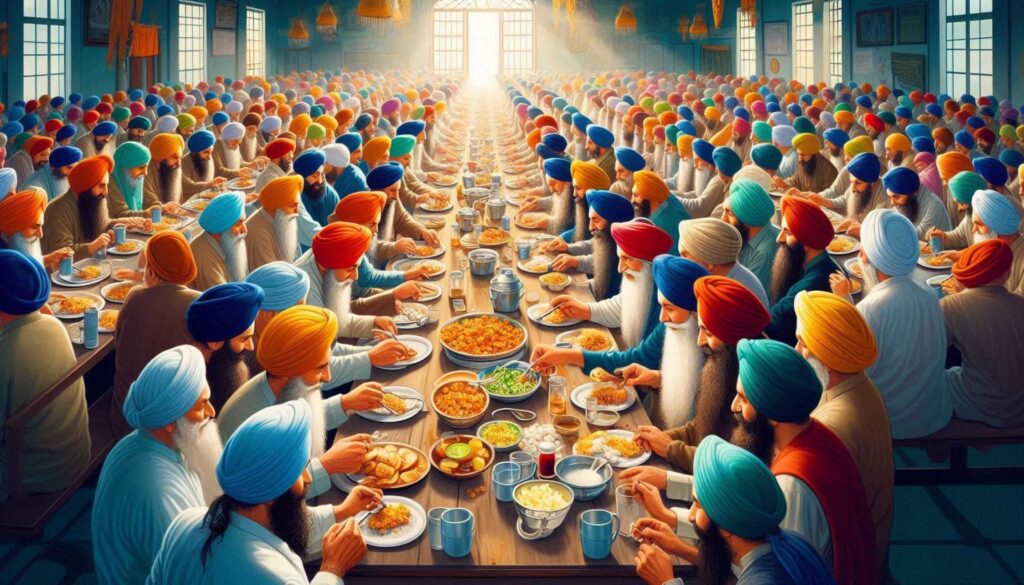
Date: August 30, 2025
Overview: Gurpurab commemorates the birth of Guru Nanak, the founder of Sikhism, and is celebrated with reverence in Jammu and Kashmir, which has a significant Sikh population.
Rituals:
- Akhand Path: The continuous reading of the Guru Granth Sahib takes place in gurdwaras, lasting for 48 hours leading up to the Gurpurab.
- Langar: Community kitchens (langars) are set up, providing free meals to all attendees, reinforcing the principles of equality and service.
- Prayer and Kirtan: Special prayers and kirtan (devotional singing) are organized, allowing devotees to express their devotion and seek blessings.
Cultural Significance: Gurpurab highlights the values of equality, community service, and spiritual devotion. It fosters interfaith harmony and showcases the cultural diversity of Jammu and Kashmir.
Conclusion
August 2025 in Jammu and Kashmir is filled with a vibrant array of festivals that celebrate the region’s rich cultural and spiritual heritage. From Nag Panchami to Gurpurab, these festivals highlight the importance of community, nature, and familial bonds in the lives of the people. Engaging in these celebrations offers opportunities for reflection, devotion, and unity, allowing individuals to connect with their roots and each other.
As you participate in these festivals, remember the deeper meanings behind each ritual and the connections they foster within families and communities. Each festival is a reminder of the enduring spirit of Hinduism and its teachings of love, respect, and harmony.


